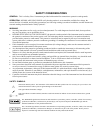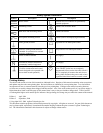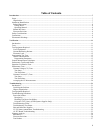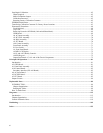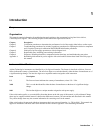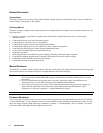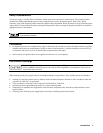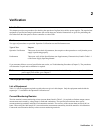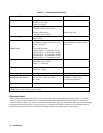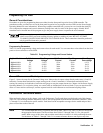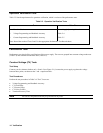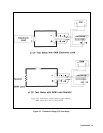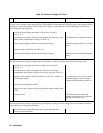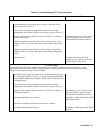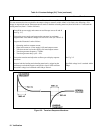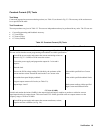
12 Verification
Table 2-1. Test Equipment Required
Type Required Characteristics
Recommended Model
Digital Voltmeter
1
Resolution: 10 nV @ 1V Agilent 3458A
Readout: 8 1/2 digits
Accuracy: 20 ppm
Current Monitor Resistor
1
Agilent 6682A, 6683A, Agilent 6684A: Guildline 9230/300
0.001Ω ± 0.04%, 300A, 100W
Agilent 6680A, 6681A Burster Type 1280
100 µΩ ± 0.05%, 1000A
DC Power Supply
DC Power Source with current capability
equal to UUT
Agilent 6680A
Electronic Load
Resistor Load
Range: Voltage and current range must
exceed that of supply under test. Power:
5.4KW minimum
or
5 Kilowatt minimum
Agilent 6680A = 5.7 milliohms 4375W
Agilent 6681A = 13.8 milliohms 4640W
Agilent 6682A = 87.5 milliohms. 5040W
Agilent 6683A = 200 milliohms 5120W
Agilent 6684A = 312 milliohms 5120W
3 each Agilent 6050A, w/3 each
Agilent 60504B per Agilent 6050A
for all units
Oscilloscope
Sensitivity: 1mV Agilent 54504A
Bandwidth Limit: 20MHz
Probe: 1:1 with RF tip
RMS Voltmeter
True RMS Bandwidth: 20MHz Agilent 3400B
Sensitivity: 100 µV
Current Transformer
0.1Volt per ampere: 1Hz to 20MHz Pearson Model 411
Variable-Voltage
Transformer (AC Source)
Power: 3 Phase 24KVA; Range:
180-235V 47 - 63Hz; 360- 440V
47 - 63Hz
Superior Powerstat
1156DT-3Y, 0-280V, 50A,
24.2 KVA or equivalent .
GPIB Controller
2
Full GPIB capabilities
HP Series 200/300
1
Required for Operation Verification Tests.
2
Required for remote testing of 668xA models.
Electronic Load
Many of the test procedures require the use of a variable load capable of dissipating the required power. If a variable
resistor is used, switches must be used for connecting, disconnecting, and shorting the load resistor. For most tests, an
electronic load (see Table 2-1) is easier to use than a variable resistor. However, an electronic load may not be fast enough
for testing transient recovery time or may be too noisy for testing noise (PARD). In these cases, fixed load resistors of
suitable power dissipation can be used with minor changes to the test procedures given in this chapter.



